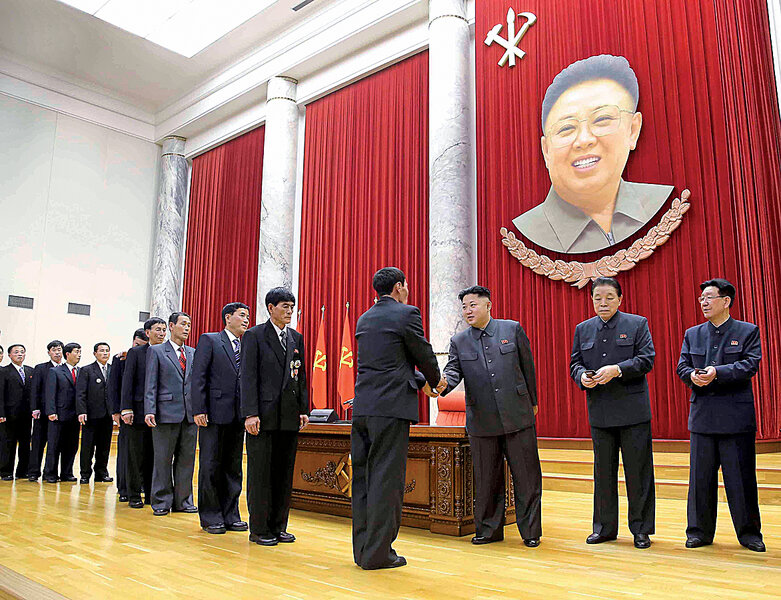UN inquiry hears harrowing reports on N. Korean prison camps
Loading...
| Boston
After 35 years as a judge in Australia, Michael Kirby had heard so many wrenching cases that he found his heart hardening. Yet as head of the first official United Nations commission of inquiry into North Korea, he has more than once found himself in tears.
Over the past eight months, in hearings conducted in Seoul, South Korea; Tokyo; London; and Washington; Judge Kirby and two other experts have heard from defectors, experts, and scholars who have talked about prison camp life, perilous escapes, tortures, rapes, and trying to stay alive in a harsh police state.
Women spoke of being trafficked or sold in China and of being returned pregnant and subject to beatings and forced abortions as their offspring would not be pure Korean.
The testimony was notable for including material focused on women and the use of food as a weapon against a population.
"You would have to be a stony-hearted person not to be moved by the stories that the commission of inquiry has received," Kirby said recently in London.
Roberta Cohen of the Brookings Institution testified in the Washington hearings, saying that the issues faced by women should not be lost in "mainstream" accounts of crimes.
Ms. Cohen argues that women in camps or detention centers are inherently in a vulnerable position and face a steady stream of mistreatment. In a recent South Korean Unification Ministry account of 230 women refugees from camps, she said, nearly half reported that sexual violence "is common."
Western governments have long known about a "hidden gulag" in the North of city-sized prison camps where an estimated 100,000 to 150,000 inmates daily face starvation and torture, many on political grounds. The camps can be seen via commercial satellite photography.
Yet only last year, the UN Human Rights Council, under UN High Commissioner for Human Rights Navi Pillay, began a formal inquiry into the scope of potential crimes against humanity. The language designed to give the commission some clout is that work will go forward with an eye to holding the North Korean regime "accountable."
That means the UN Security Council could vote to "refer" suspected North Korean crimes against humanity to the International Criminal Court.
The findings will be discussed in Geneva March 17. If more than half the 47 members of the rights council determine that atrocities or crimes are being committed, the idea to prosecute would move to a vote in New York.
"This was the first UN inquiry held in public," says David Hawk, author of "The Hidden Gulag," a compendium of the North's labor camps and prisons that relies on testimony. "Kirby doesn't want yet another UN report that will sit on a shelf."





